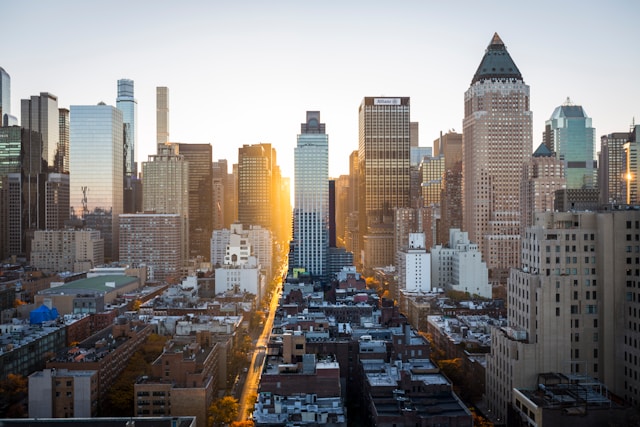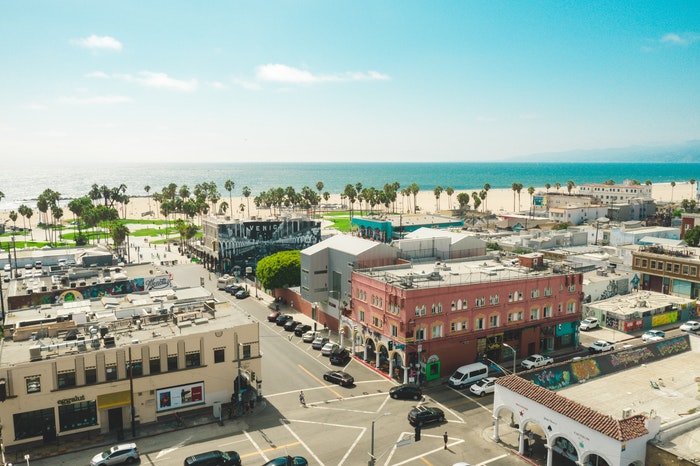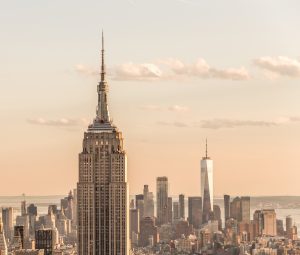Archive for the ‘Best Cities for Business in the USA’ Category
March 24th, 2025

In today’s fast-paced world, achieving a healthy work-life balance is more important than ever. All over the nation, office workers increasingly seek environments that balance professional growth with personal well-being, and certain cities in the USA stand out for their commitment to creating such balance. This article explores the American cities that excel in providing a harmonious blend of work and life, making them ideal for office workers striving for a better quality of life.
Work-life balance in the USA
Recent studies indicate that a significant number of American workers feel overworked and underpaid, leading to increased stress and burnout. This has prompted many employees to consider relocation to cities that support a healthier lifestyle.
Read the rest of this entry »
Tags: best cities, Best US Cities for Business, future of work, top cities, Top US Cities to work in, USA Cities, work-life balance
Posted in Best Cities for Business in the USA, Cities & States, Employment and Worklife, Trends and Statistics | No Comments »
Add to: Del.icio.us | Digg
January 23rd, 2025

The United States boasts a diverse array of cities, each offering unique advantages for entrepreneurs. The country has a very dynamic business scene and ranks 6th among all OECD high-income countries for ease of doing business.
The United States is also the world’s biggest economy, with more than 33 million businesses, which confirms its standing as one of the most favorable environments for starting a business.
In addition to a vast consumer market, high rates of pay, abundant resources, and a culture that encourages innovation and entrepreneurship, the nation offers numerous opportunities for new ventures. However, choosing the right city to launch a new business is crucial to leveraging these benefits effectively.
This article explores the top 10 cities to start a business in the USA, highlighting what makes each location exceptional for entrepreneurs.
Read the rest of this entry »
Tags: Arizona, Best US Cities for Business, Business Advice, Business Start Ups, Florida, Georgia, North Carolina, statistics, Tennessee, Texas, USA, USA Cities
Posted in Atlanta, Best Cities for Business in the USA, Business Advice, Business Districts, Business Start Ups, Cities & States, Entrepreneurs, Florida, Georgia, Market Overviews, Miami, North Carolina, Texas, Trends and Statistics | No Comments »
Add to: Del.icio.us | Digg
August 9th, 2024

New York City’s Central Business District, which encompasses Midtown and Downtown Manhattan, has been an influential economic and financial capital since the 19th century, mainly thanks to the presence of the New York Stock Exchange (NYSE) and other important financial institutions.
Today, it is the largest central business district in the United States, with a total area of 2.2 square miles.
Key Facts & Figures about NYC Central Business District
- The central business district consists of three sub-districts: Midtown, Midtown South, and Downtown, which are further divided into 18 sub-markets.
- There are approximately 190,000 small businesses, which employ more than 900,000 people.
- This area is home to 40 Fortune 500 corporations, the highest concentration in the country.
- The New York central business district was recently listed as the second best startup ecosystem in the nation and worldwide.
- The central business district has more than 617,000 residents and nearly 900,000 people commute into the area every day.
- Local companies attracted nearly $20bn in venture capital funding in 2023.
- In 2023, NYC attracted more than 62 million visitors per year, with business travelers accounting for 20% of the total.
Read the rest of this entry »
Tags: Business Start Ups, CBD's, Central Business Districts, Manhattan, new york
Posted in Best Cities for Business in the USA, Business Districts, Business Spotlights, Business Start Ups, CBD's, Manhattan, New York | No Comments »
Add to: Del.icio.us | Digg
June 5th, 2024

All over the United States, central business districts serve as a magnet for economic growth and employment. In this article, we offer an updated overview of the top 10 largest CBDs in the country, accounting for the changes that CBDs have experienced post-2020.
1. New York City
New York City’s CBD is the largest in the country and covers a large area in Midtown and downtown Manhattan.
The city’s CBD contains nearly 420 million square feet of office real estate, with the biggest clusters being in Grand Central, Penn Station, Sixth Avenue, Rockefeller Center, Financial East, and World Trade Center.
Read the rest of this entry »
Tags: Best US Cities for Business, Business Districts, Business Start Ups, CBD's, USA
Posted in Best Cities for Business in the USA, Business Districts, Business Spotlights, CBD's | No Comments »
Add to: Del.icio.us | Digg
November 30th, 2022
The impact of the pandemic can still be felt on multiple fronts, almost three years after its emergence in early 2020. One of the most noticeable of these impacts has been the proliferation of remote work and its influence on where people choose to live and work. Not so long ago, most people chose where they lived based on where they worked or where their industry was focused. Fast forward to the end of 2022, and it’s no longer as cut and dry as it once was.
In recent years, large cities and their suburban rings have lost some of the appeal that previously allowed them to attract employees and homeowners. Today, the rise of remote work and the decentralization of talent that it provides has given way to a surge in demand for both residential and commercial properties in areas that had previously flown under the radar.
Some pundits are saying that these changes are here to stay, so the question is – where are people living and working in a post-pandemic United States?

Read the rest of this entry »
Tags: 2022, austin, Dallas, decentralization, housing, Miami, mobility, Office Space, San Antonio, statistics, Texas, trends
Posted in Best Cities for Business in the USA, Office Talk, Trends and Statistics | No Comments »
Add to: Del.icio.us | Digg
September 1st, 2022

Houston Office Market
Latest data from Q2 2022 shows Houston’s total office space inventory at 349.5 million square feet, a significant bump in supply from the mid-2021 figure of 173 million square feet. Despite the increase in stock, there have finally been gains in occupancy, with Q1 signalling this healthy marker for the first time since the start of the pandemic.
There were hints of this recovery at the end of 2021. The trend of last year’s subpar market performance was bucked by Class A and trophy office space (Class A+), which accounted for more than 60% of all leasing activity in Houston during Q3 2021. This positive influence has continued into Q2 2022, with Class A demand being the sole driver for occupancy gains in roughly half of Houston’s office submarkets.
Recently refurbished Class A offices, in developments built after 2005, are bucking the vacancy rate trends. These buildings report only 17% vacancy in Q2 2022, compared to the overall Class A vacancy rate of 25.6%. The new renovation programs undertaken by these mid-age office suppliers have clearly been a hit with Houston businesses, serving to satisfy post-pandemic amenity demands better than their newly developed A Grade counterparts.
Despite these low vacancy rates, the five largest leasing deals during Q2 2022 were for new and Class A CBD office space. This trend can be further illustrated by the newly completed Texas Tower, with occupancy already at 70% leased, despite only opening in the first quarter of 2022. As with the vast majority of major cities in the United States, the Houston CBD appears to be the focal point for the highest activity.
Key Takeaways
- Inventory – 349.5 million square feet
- Overall vacancy – 23.4% (a slight decrease from Q1’s 23.6%)
- Net absorption – negative 90,000 square feet (due to coming off the back of the bumper mid-year figure of +641,7000 when several substantial tenants moved into newly completed offices)
- Availability – 27.6%
- Average asking rents – $30.80 (up 1.9% YOY)
- Investment sales – $156 per square foot (up from $116 in Q2 2021)
Read the rest of this entry »
Tags: 2022, coworking, Houston, industrial, market reports, Office Space, retail, vacancy rates
Posted in Best Cities for Business in the USA, CRE, Houston, Market Overviews | No Comments »
Add to: Del.icio.us | Digg
February 25th, 2021
 In a previous blog post we examined the performance of the commercial real estate market in some major US cities. This is the second article in this series, which uses data from late 2020 and early 2021 to examine vacancy and supply rates in cities such as Los Angeles, Chicago, Atlanta and Houston. These statistics illustrate the impact of COVID-19 on the commercial property rental market, as well as the types of properties that are holding strong in the face of negative trends.
In a previous blog post we examined the performance of the commercial real estate market in some major US cities. This is the second article in this series, which uses data from late 2020 and early 2021 to examine vacancy and supply rates in cities such as Los Angeles, Chicago, Atlanta and Houston. These statistics illustrate the impact of COVID-19 on the commercial property rental market, as well as the types of properties that are holding strong in the face of negative trends.
Los Angeles
Los Angeles is a hub for creative, media, and entertainment companies, many of which are office-based. The city’s proximity to major cargo ports makes it convenient for logistics and distribution businesses, both of which have kept the industrial real estate market strong.
Offices
- Vacancy rates in downtown Los Angeles are 21.5%.
- In Q4 20202, there was more than 5.5 million square feet for vacant space, with 3.4 million feet being in the Financial District.
- The majority of vacant inventory involves Class A offices.
- Supply increased by more than 2 million square feet in the past 12 months.
- No new supply is expected to enter the market as no projects are currently under construction in the CBD area.
- Vacancy rates average 22.5% outside of the CBD, however, they reach 56% in the Fashion District.
- Vacancy rates are just under 18% in the Greater Los Angeles area.
Read the rest of this entry »
Tags: 2021, Atlanta, Brooklyn, chicago, Houston, Los Angeles, Seattle, vacancy and supply
Posted in Atlanta, Best Cities for Business in the USA, Brooklyn, Chicago, Houston, Los Angeles, Office Space Forecasts and Trends, Seattle, Trends and Statistics | No Comments »
Add to: Del.icio.us | Digg
February 11th, 2021

With a market size of nearly $900bn, the United States has one of the world’s largest commercial real estate markets, coupled with some of the most desirable business locations to match. This post serves as the first part of our examination into the US market’s performance based on data from Q4 2020 and Q1 2021.
Read the rest of this entry »
Tags: 2021, Boston, Dallas, dc, new york, philadelphia, San Francisco, vacancy and supply, Washington
Posted in Best Cities for Business in the USA, Boston, Dallas, DC, Manhattan, New York, Office Space Forecasts and Trends, Philadelphia, San Francisco, Trends and Statistics, Washington | No Comments »
Add to: Del.icio.us | Digg
August 28th, 2020

The need for a satellite office is often a marker of business growth and success. Relocating the main headquarters and operations of a business isn’t always practical due to the time and expenses involved. As businesses evolve and expand their reach across the globe, they often require a physical presence in multiple locations, allowing them to operate effectively outside of their initial location. A multinational tech giant, such as Amazon, can be seen as a prime example of a business that utilizes satellite offices across the globe to ensure that their reach extends beyond their main Seattle office space. For many companies, acquiring satellite locations is the most feasible way of meeting growth and expansion needs, especially when there are contractual or financial limitations to how much an office can be physically expanded.
Satellite offices, also known as branch offices, tend to have a smaller footprint than their parent company. Many organizations benefit from having a network of satellite locations instead of a centralized office, creating a web of offices which allows them to operate to maximum efficiency.
Satellite offices can be in a different city, county or state from their parent company or the company’s headquarters. To determine where a satellite office should be based, factors such as the proximity to the target market, tax or financial incentives, and the area’s business or economic development climate are taken into account.
As part of the state of California, Los Angeles is renowned for its thriving business scene and strong economic indicators. The city benefits from a mature commercial real estate market that offers a great variety of alternative office spaces, usually ranking among the top five in the United States. Read the rest of this entry »
Tags: Flexible Offices, Los Angeles, Office Space LA, Office Talk, Satellite Offices
Posted in Best Cities for Business in the USA, California, Los Angeles, Office Talk | No Comments »
Add to: Del.icio.us | Digg
April 30th, 2020
 The Empire State Building, situated in vibrant Midtown Manhattan, was inaugurated in 1931 and soon after it became one of the most iconic high rises in the city of New York. The 102-storey art deco style skyscraper is located within walking distance of Herald Square and 33rd Street subway stations and is within easy reach of 16 subway lines.
The Empire State Building, situated in vibrant Midtown Manhattan, was inaugurated in 1931 and soon after it became one of the most iconic high rises in the city of New York. The 102-storey art deco style skyscraper is located within walking distance of Herald Square and 33rd Street subway stations and is within easy reach of 16 subway lines.
As well as being a major tourist attraction, the Empire State is a commercial building that accommodates office occupiers mostly involved in banking, technology, and advertising and offers one of the most prestigious business addresses in the city of New York. The building’s antenna is also a broadcast tower that serves the media sector, and there are several radio and television stations that broadcast from their offices in the building. Moreover, the Empire State’s observation deck is one of the most visited tourist landmarks in the city, generating approximately 40 percent of the building’s revenues, and attracting around 4 million visitors a year.
This 102-story building is has been occupied by a diverse mix of highly successful companies over the years, and major tenants have included prestigious businesses like LinkedIn, Bank of America, Shutterstock, Expedia, Media General, BNP Media, Qatar Airways, Unipharm, Bonten Media Group, Walgreens, Noven Pharmaceuticals, and Orion Energy.
Finding Office Space In the Empire State Building
The Empire State Building has a total floor area of more than 2 million square feet and includes a fantastic portfolio of small, mid-size and multi-floor units, pre-built offices and built-to-suit premises occupying full floors. Floor sizes range between 12,900 and 100,000 square feet. Read the rest of this entry »
Tags: Empire State Building, Manhattan, new york, office space options
Posted in Best Cities for Business in the USA, Business Districts, Manhattan, New York | No Comments »
Add to: Del.icio.us | Digg






 In a previous blog post we examined the performance of the commercial real estate market in some major US cities. This is the second article in this series, which uses data from late 2020 and early 2021 to examine vacancy and supply rates in cities such as Los Angeles, Chicago, Atlanta and Houston. These statistics illustrate the impact of COVID-19 on the commercial property rental market, as well as the types of properties that are holding strong in the face of negative trends.
In a previous blog post we examined the performance of the commercial real estate market in some major US cities. This is the second article in this series, which uses data from late 2020 and early 2021 to examine vacancy and supply rates in cities such as Los Angeles, Chicago, Atlanta and Houston. These statistics illustrate the impact of COVID-19 on the commercial property rental market, as well as the types of properties that are holding strong in the face of negative trends.

 The Empire State Building, situated in vibrant Midtown Manhattan, was inaugurated in 1931 and soon after it became one of the most iconic high rises in the city of New York. The 102-storey art deco style skyscraper is located within walking distance of Herald Square and 33rd Street subway stations and is within easy reach of 16 subway lines.
The Empire State Building, situated in vibrant Midtown Manhattan, was inaugurated in 1931 and soon after it became one of the most iconic high rises in the city of New York. The 102-storey art deco style skyscraper is located within walking distance of Herald Square and 33rd Street subway stations and is within easy reach of 16 subway lines.